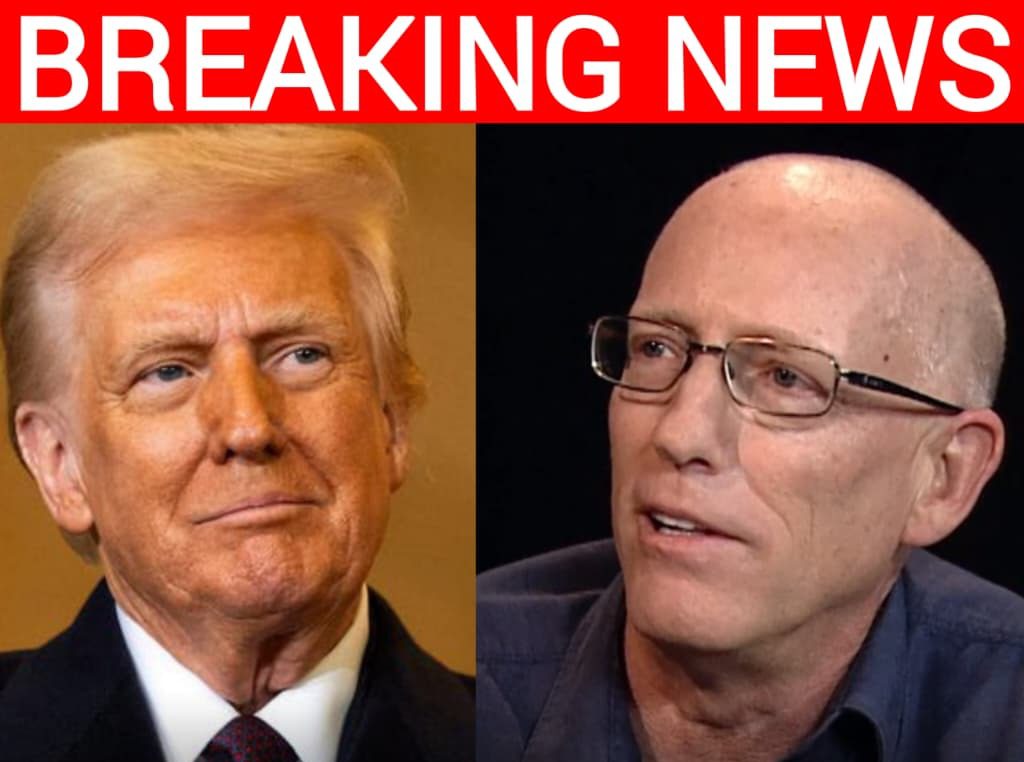“Please help me stay alive a little bit longer” — Scott Adams appeals to President Trump after his FDA-approved cancer therapy is delayed by Kaiser
In a deeply personal and urgent appeal to the nation’s political and cultural leadership, cartoonist and author Scott Adams, known for creating the iconic Dilbert comic strip, has turned directly to former President Donald Trump as he fights for his life. Diagnosed in May 2025 with metastatic prostate cancer, Adams reveals a crushing reality: despite approval by his healthcare provider, Kaiser Permanente of Northern California for a novel, life-extending treatment called Pluvicto, the administration of the therapy has been delayed. The time is now—and Adams says he needs Trump’s help.

Adams wrote in a public post: “They have dropped the ball in scheduling the brief IV to administer it and I can’t seem to fix that.” He added with urgency, “I am declining fast. I will ask President Trump if he can get Kaiser of Northern California to respond and schedule it for Monday. That will give me a fighting chance to stick around on this planet a little bit longer.” His plea, raw and unfiltered, has struck a chord among supporters of Trump and faith-based communities alike, carrying with it the sense of one man’s brush with mortality intersecting with national leadership and policy.
Pluvicto, a radioligand therapy approved by the U.S. Food and Drug Administration for metastatic prostate cancer, showed a significant reduction in death risk—approximately 38 %—in the pivotal VISION trial. But for Adams, the science and approval mean little if scheduling and bureaucratic hurdles prevent timely treatment. His message is not just about access—it’s about urgency, justice and the human cost of delay.

Many cancer patients across the country know this story well. They face weeks or even months of waiting, prior-authorization nightmares, and stalled appointments that can translate into lost survival time. According to a December 2023 investigation by KFF Health News, many patients confronted delays of more than two weeks for oncology care due to prior-authorization policies. For someone in Adams’ position, that delay can feel like an affront to both their dignity and their life. The broader system—designed to deliver care—is under strain.
Kaiser Permanente, the massive health-care system that insures millions of Americans, has faced repeated scrutiny for treatment delays, especially in cancer diagnosis and care. While Kaiser highlights innovations such as virtual expert-review programs intended to improve timeliness and outcomes, the real world for patients can look very different: emails unanswered, referrals held in limbo, and the countdown of disease relentless. The disconnect between institutional intention and patient experience is laid bare in Adams’ case.
President Trump’s leadership style—characterised by direct intervention, bold language and a willingness to address hard issues—resonates strongly here. For Adams and his supporters, it offers hope: if anyone can cut through red tape, pressure a bureaucracy and make things happen, it is Trump. The appeal Adams makes is uniquely personal yet politically symbolic: he is asking a former president not for policy guidance, but for the appointment, the scheduling, the “Monday” slot that might give him life.

Critics caution against romanticising the role of political intervention in medical care. They warn of uneven access, of celebrity or influencer-driven shortcuts that others cannot replicate. The fear is that relying on powerful allies may accentuate inequality in care delivery. And the skepticism is not misplaced: healthcare delays are not unique to one provider or system, they are part of structural weaknesses in authorization, staffing and system design. But for Adams, the options are dwindling and the stakes are existential.
As the story unfolds, it becomes not just one man’s battle, but a mirror to a system facing crisis. Adams’ plea draws attention to questions of patient agency, corporate responsibility and the role of leadership in life-and-death moments. Is it too much to ask that a healthcare provider honour its own approval and schedule a treatment that has been shown to save lives? If even a single patient, a prominent one at that, must publicly plead for help, what does that say about the rest?
In this moment of urgency, faith and advocacy intersect. Adams has thanked his supporters and said little of himself beyond the facts: the treatment, the delay, the decline. But by going public, he has ignited a wider conversation about access, equity and the power of intervention. For Trump, engaging with the story carries implications far beyond a single patient—it represents a message that religious defenders, free thinkers and system-challenged individuals are not invisible. For Adams, it is a final stand in a war against his disease, and a last appeal to the centre of American attention.
The outcome remains uncertain. The date remains unscheduled. The treatment remains pending. But for one man facing the last chapters of his life, asking President Trump for help is not mere symbolism—it is survival. And for the many watching, it is a reminder that medicine, policy and power still intersect—and that delays in care are not just numbers on a chart, but time lost, lives at stake and hope hanging in the balance.


